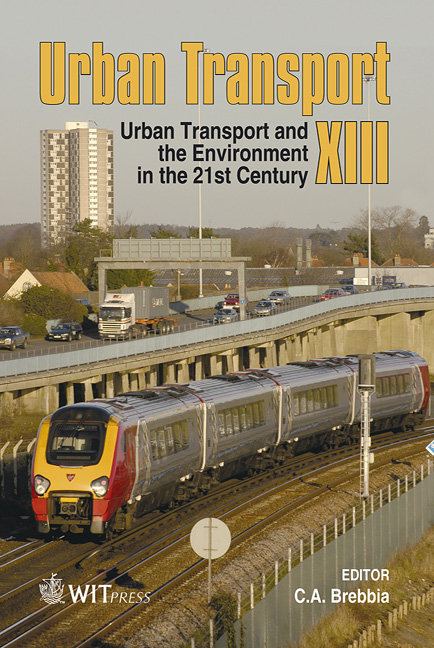The Quality Of Public Transport: Relative Importance Of Different Performance Indicators And Their Potential To Explain Modal Choice
Price
Free (open access)
Transaction
Volume
96
Pages
13
Published
2007
Size
580 kb
Paper DOI
10.2495/UT070301
Copyright
WIT Press
Author(s)
A. J. M. Seco & J. H. G. Gonçalves
Abstract
This paper aims to present the state-of-the-art in terms of performance indicators for quality evaluation of public transport services in urban areas. Attending to the problems faced by citizens of major urban areas all over the world, arguments are presented to justify not only the need for development of alternative transports systems relatively to private cars, but also to enhance their use. Through a revision of commonly world-wide performance indicators used in service quality evaluation studies, the paper presents those that reveal a higher potential for fast and reliable representation of citizens service quality evaluation to be used by operators, local authorities or planners. The text finishes with the proposal of future research with the integration of the selected indicators in mode choice models. Keywords: public transport, quality evaluation, performance indicators, mode choice modelling. 1 The importance of public collective transport system’s quality evaluation The urban areas in developed and industrialized countries lodge more than 2/3 of their population [19]. Thus, urban problems: economic development, sustainable environment, citizens’ security, public health or cultural differences; affect directly and indirectly most of the population, showing that their resolution is of capital importance for each country’s vitality, prosperity and economic
Keywords
public transport, quality evaluation, performance indicators, modechoice modelling.





